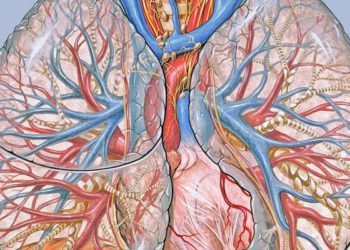USPSTF recommends behavioral counseling to reduce cardiovascular disease
1. A new recommendation statement from the U.S. Preventive Services Task Force (USPSTF) suggests that adults who are overweight or obese and have additional cardiovascular risk factors should undergo intensive behavioral counseling for cardiovascular disease (CVD) prevention.
2. Although counseling did not yield improvements in health outcomes (such as mortality), it did produce modest improvements in intermediate CVD markers, and was not associated with substantial harms.
Evidence Rating Level: 1 (Excellent)
Study Rundown: Cardiovascular disease is a significant cause of death and disability in the United States, particularly among adults who are overweight or obese. In this systematic review and resulting guideline, the USPSTF addressed the role of primary care-based counseling in preventing CVD, focusing on adults with existing cardiovascular risk factors, such as hypertension or smoking. To formulate the guideline, the authors reviewed research on counseling about diet, physical activity, or both, among patients with CVD risk factors. After synthesizing results from these studies, the authors found that counseling did not have an effect on mortality or CVD events. However, counseling did improve several factors that have been linked to CVD, such as high blood pressure, cholesterol and blood sugar. Furthermore, negative effects of counseling appeared to be infrequent and minor. The limitations of this literature review and guideline arise primarily from the varying quality of the studies assessed. In particular, few studies reported on outcomes beyond 1-2 years after counseling, despite the chronic nature of CVD. Additionally, although the authors recommend high-intensity counseling strategies, they acknowledge that these types of intervention may not be widely feasible in clinical care. Despite these limitations, the USPSTF endorses intensive behavioral counseling for overweight and obese individuals with CVD risk factors because of the modest benefits and minimal harms resulting from this group of interventions.
Click to read the study, published today in the Annals of Internal Medicine
In-Depth [systematic review]: This 2014 recommendation is an update to the 2003 USPSTF recommendation on counseling in adults with CVD risk factors. To formulate this recommendation, the USPSTF assessed 74 trials that reported on counseling effects on health outcomes and intermediate measures of CVD risk (such as blood pressure). Counseling focused on diet, physical activity, or both. Studies were included if participants had at least 1 CVD risk factor, and most patients in these studies were either overweight or obese (mean body mass index was 29.8 kg/m2). Notably, studies were excluded if they used controlled diets or supervised exercise. Only 5 studies reported CVD events, of which only 1 showed a reduction in CVD events following counseling. However, the authors found that medium- and high-intensity counseling produced modest but statistically significant drops in total cholesterol, low-density lipoprotein, triglyceride levels, blood pressure, fasting glucose and weight, and elevation in high-density lipoprotein, at 12 and 24 months. In addition, diabetes incidence decreased, and there were small improvements in self-reported dietary and physical activity behaviors. The USPSTF concluded that because of multiple small benefits and minimal harms arising from intensive counseling, these interventions would result in moderate net benefits for obese and overweight adults with additional CVD risk factors.
More from this author: Corticosteroids and physical therapy equally effective for shoulder impingement syndrome, HIV rebound observed after therapeutic stem cell transplant
Image: PD
©2012-2014 2minutemedicine.com. All rights reserved. No works may be reproduced without expressed written consent from 2minutemedicine.com. Disclaimer: We present factual information directly from peer reviewed medical journals. No post should be construed as medical advice and is not intended as such by the authors, editors, staff or by 2minutemedicine.com. PLEASE SEE A HEALTHCARE PROVIDER IN YOUR AREA IF YOU SEEK MEDICAL ADVICE OF ANY SORT.







